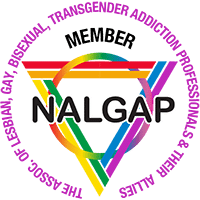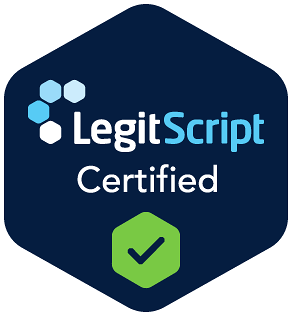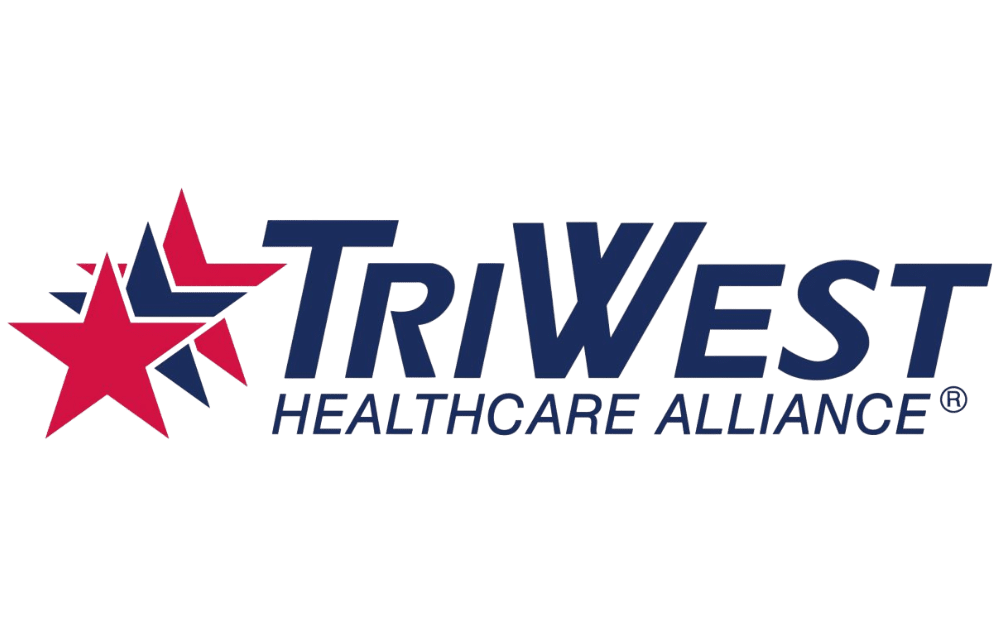Sober living homes in Denver Colorado
The Journey of Recovery
Recovery from substance use is a deeply personal journey. In Denver, the availability of well-structured sober living homes offers individuals a controlled environment to continue their recovery after formal treatment. These homes are pivotal in fostering a community of support, where individuals can find solace and accountability. By nurturing personal growth and encouraging routine, they lay a foundation for sustainable sobriety.
Mile High Recovery Center in Denver stands out with its comprehensive approach to addiction treatment. Combining therapeutic programs with sober living environments, it provides a continuum of care that supports individuals in their journey towards recovery and reintegration into society. The center’s sober living homes are integral to this process, offering a supportive space for individuals to practice sobriety in real-world settings.
Why Denver?
Denver’s vibrant culture and access to nature create an ideal backdrop for recovery. The city’s commitment to wellness and healing is evident in the myriad of resources available for those seeking support. The natural beauty and recreational activities of Denver can greatly enhance the recovery process, offering both inspiration and a plethora of healthy, engaging activities.
Denver is also home to a diverse array of support groups, 12-step meetings, and community events dedicated to recovery. This accessibility fosters a sense of belonging and community, which is essential for individuals in sober living homes. The shared experiences of those in recovery create a strong network of individuals who understand and support one another.
Features of Sober Living Homes
Sober living homes in Denver, Colorado, provide a bridge between structured treatment and independent living. They offer a safe, substance-free environment where residents can focus on recovery. These homes emphasize accountability, with rules and guidelines designed to foster safety, respect, and personal growth.
At Mile High Recovery Center, the sober living homes feature comfortable living spaces that encourage residents to build healthy routines. Staff members, often with lived recovery experience, provide consistent support and guidance. This combination of structured living and personal support is key to helping residents transition smoothly from treatment to independent life.
The Importance of Community
Community is at the heart of effective sober living homes. These homes provide a setting where individuals can form meaningful connections and learn from others on similar journeys. The shared experiences within the community foster a sense of belonging and mutual understanding.
Residing in a supportive community helps individuals develop essential life skills and coping mechanisms needed for long-term sobriety. By participating in group activities and communal living, residents learn to navigate challenges and celebrate successes together, reinforcing their commitment to recovery.
Structuring a Routine
Developing a routine is crucial for individuals in recovery. Sober living homes emphasize the importance of structure by encouraging residents to engage in productive activities such as employment, education, or volunteering. Building a routine not only fosters independence but also enhances self-esteem and purpose.
In addition to personal activities, residents of sober living homes participate in daily household responsibilities and community meetings. These activities contribute to a sense of achievement and foster accountability. The structured environment of a sober living home provides the guidance needed to reinforce healthy habits and lifestyle choices.
Therapeutic Support
Therapeutic support is a cornerstone of recovery provided by Mile High Recovery Center’s sober living homes. The center integrates evidence-based therapies with experiential modalities to offer comprehensive support tailored to individual needs. Residents have access to therapies such as Cognitive Behavioral Therapy and Motivational Enhancement Therapy, among others.
Experiential therapies, like adventure and equine-assisted therapy, are also available. These unique therapeutic experiences allow individuals to explore new perspectives, build confidence, and develop coping strategies. The combination of traditional and experiential therapies empowers residents to address the underlying issues of substance use and mental health challenges.
Bridging the Gap Between Treatment and Independence
Sober living homes play a critical role in bridging the gap between formal treatment and independent living. They provide an environment where individuals can apply the skills learned in treatment to real-life situations. This transition is crucial for developing confidence and resilience.
Mile High Recovery Center’s sober living homes emphasize the importance of this transitional phase. By offering a supportive community and structured environment, residents are better equipped to navigate the challenges of independent living while maintaining their commitment to sobriety.
Determining the Length of Stay
The length of stay in a sober living home varies based on individual needs and progress. At Mile High Recovery Center, residents are encouraged to remain in the supportive environment as long as they benefit from it. Some individuals stay for several months, while others may choose to remain for over a year.
This flexible approach allows residents to focus on their personal growth and recovery goals. The decision to stay longer is often influenced by the desire to deepen connections within the community and solidify the routines and skills necessary for a successful transition to independent living.
Visitors and Community Integration
Maintaining connections with family and friends is crucial during recovery. Sober living homes in Denver, Colorado, often allow visitors during specified hours to encourage communication with loved ones. This helps residents stay connected and supported by their broader community.
Visitation Guidelines:
- Visitors are permitted during designated hours to ensure the safety of the community.
- Residents are encouraged to include family in their recovery journey.
- House rules must be respected, and overnight stays are generally not allowed.
This approach to visitation balances the need for external support with the importance of maintaining a safe, structured environment within the home.
Alumni Support and Long-Term Outcomes
Mile High Recovery Center’s commitment to long-term recovery extends beyond the duration of a resident’s stay. The center has an active alumni community that serves as a vital support network for individuals who have moved on from sober living homes. This community offers ongoing encouragement, resources, and connection to ensure sustainable recovery.
The alumni network also provides opportunities for former residents to give back by sharing their experiences and supporting new residents. This reciprocal support system fosters a sense of purpose and reinforces the values learned during the recovery process, contributing to the lasting success of individuals in the community.
Understanding the Role of Sober Living Homes in Recovery
What exactly is the role of sober living homes in the recovery process, especially in a vibrant city like Denver?
Sober living homes serve as a crucial transitional space for individuals moving from formal treatment to independent living. They provide a stable and supportive environment where residents can practice sobriety in the context of daily life. In a city like Denver, with its unique blend of nature and community-focused resources, these homes offer an inspiring backdrop for recovery. Residents benefit not only from the structured, substance-free environment but also from access to supportive peers and opportunities for personal growth through Denver’s many outdoor and community activities. A sober living home can be a place where someone learns to balance responsibility with self-care, making it an integral part of the recovery journey.
Misconceptions About Sober Living Homes
What are some common misconceptions about sober living homes?
One common misconception is that sober living homes are the same as rehab centers. While they both support recovery, sober living homes focus more on helping individuals apply sobriety in everyday contexts rather than intense, structured treatment programs. Another misconception is that they are only for individuals with severe addiction issues. In reality, they serve anyone in recovery who seeks a supportive environment to strengthen their sobriety. Additionally, some people assume that these homes lack oversight; however, reputable facilities like those in Mile High Recovery Center implement rules and guidelines ensuring safety and personal development. It’s essential to recognize these environments as supportive communities, not punitive or isolating spaces.
Integrating Community and Recovery in Denver
How does Denver’s community and environment contribute to recovery in sober living homes?
Denver offers a unique environment that significantly enhances the recovery process. The city’s active recovery community provides a wealth of support groups and events that foster connection and peer support. Moreover, Denver’s access to natural landscapes and recreational activities provides residents with healthy outlets for physical and mental well-being, which is crucial for maintaining sobriety. The integration of these elements into the daily lives of residents in sober living homes can encourage engagement and motivate them to pursue long-term sobriety goals. The collective experiences and shared journeys within the community help reinforce a sense of belonging, crucial for individuals in recovery. This community-focused approach aligns well with Denver’s overall wellness culture.
Importance of Structure and Routine
Why is structuring a routine vital for individuals in sober living homes?
Establishing a routine is essential for individuals in recovery as it helps create a sense of normalcy and predictability. A structured routine can reduce anxiety by limiting idle time that might be filled with cravings or negative thoughts. In a sober living home, engaging in daily activities such as work, education, or volunteering builds accountability and self-worth. These activities are complemented by household responsibilities and community meetings that foster a sense of accomplishment and promote healthy habits. As a person in recovery, you might experience a renewed sense of purpose and confidence as you navigate this structure, which can positively influence long-term outcomes.
Therapeutic Support and Experiential Therapies
How do therapeutic support and experiential therapies enhance the recovery journey in sober living homes?
Therapeutic support in sober living homes like those at Mile High Recovery Center plays a pivotal role in addressing both the psychological and emotional aspects of recovery. Evidence-based therapies, such as Cognitive Behavioral Therapy, are tailored to individual needs, allowing residents to work through personal challenges. Experiential therapies, including adventure and equine-assisted therapy, offer unique, hands-on approaches that build self-confidence and develop coping strategies. By engaging in these therapies, residents gain insights into their behaviors and beliefs, helping them tackle underlying issues related to addiction. This comprehensive support system empowers individuals to not only maintain sobriety but also to thrive in their personal development, leading to more sustained recovery.
Personalized Length of Stay in Sober Living Homes
How do sober living homes determine the appropriate length of stay for residents?
The length of stay in sober living homes is highly personalized, based on the resident’s progress and needs. At facilities like Mile High Recovery Center, the focus is on allowing individuals to remain as long as they find the environment beneficial for their growth and recovery. This flexible approach acknowledges that recovery is not a one-size-fits-all journey. Some might thrive in a shorter stay by quickly establishing independence, while others may take longer to reinforce their routines and build community ties. The decision to extend a stay often reflects a desire to further solidify recovery strategies and community connections, promoting a successful transition to independent living.
Engaging with Family and Friends During Recovery
How do sober living homes facilitate engagement with family and friends, and why is this important?
Maintaining connections with family and friends is crucial during the recovery process, offering emotional support and motivation. Sober living homes in Denver typically allow visitors during set hours, encouraging interaction with loved ones while ensuring community safety. By involving family in their recovery journey, residents can create a support network that extends beyond the home. This interaction is vital for rebuilding relationships that may have been strained due to substance use, fostering an environment of understanding and shared journeying. Family visits can also remind residents of their motivations for staying sober, adding another layer of accountability and encouragement.
Alumni Support and Long-Term Success
What role does alumni support play in ensuring long-term success for individuals who have lived in sober living homes?
Alumni support provides a vital network for individuals who have transitioned from sober living homes back into the community. At Mile High Recovery Center, the active alumni community offers ongoing mentorship, resources, and encouragement, reinforcing the skills and values learned during residency. This network allows former residents to stay connected with people who understand their journey, reducing feelings of isolation and increasing accountability. Alumni often have opportunities to give back by mentoring new residents, which can reinforce their own recovery and provide a sense of purpose. Such structures ensure that recovery is seen not as an endpoint, but as a continuous, supportive journey, helping sustain long-term sobriety and personal growth.
Resources
- Substance Abuse and Mental Health Services Administration (SAMHSA) – SAMHSA is the leading agency within the U.S. Department of Health and Human Services focused on behavioral health. Their website offers a wealth of information on substance abuse, mental health, and recovery resources.
- National Alliance for Recovery Residences (NARR) – NARR is a nonprofit organization dedicated to promoting quality recovery housing through support services, standards, and research. Their website provides resources on recovery residences and certification.
- National Institute on Drug Abuse (NIDA) – NIDA is a government agency that conducts research on drug abuse and addiction. Their website offers valuable resources on the science of addiction, treatment options, and prevention strategies.
- Recovery.org – Recovery.org is an online resource for individuals seeking information on addiction, recovery, and treatment options. Their website includes articles, directories, and tools to support individuals on their recovery journey.
- American Psychiatric Association – The American Psychiatric Association is a professional organization representing psychiatrists in the United States. Their website offers resources on mental health, substance use disorders, and treatment approaches.
















